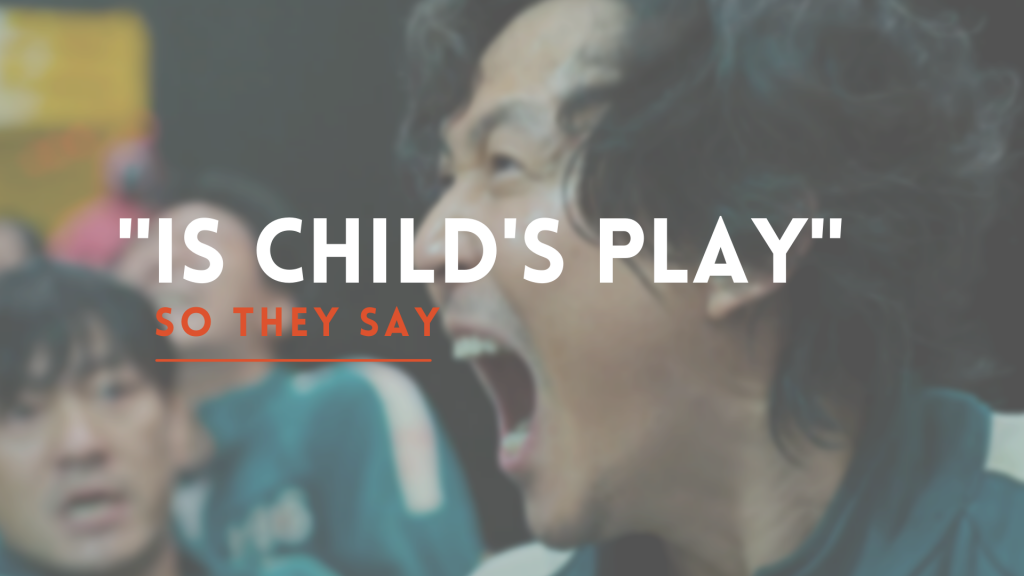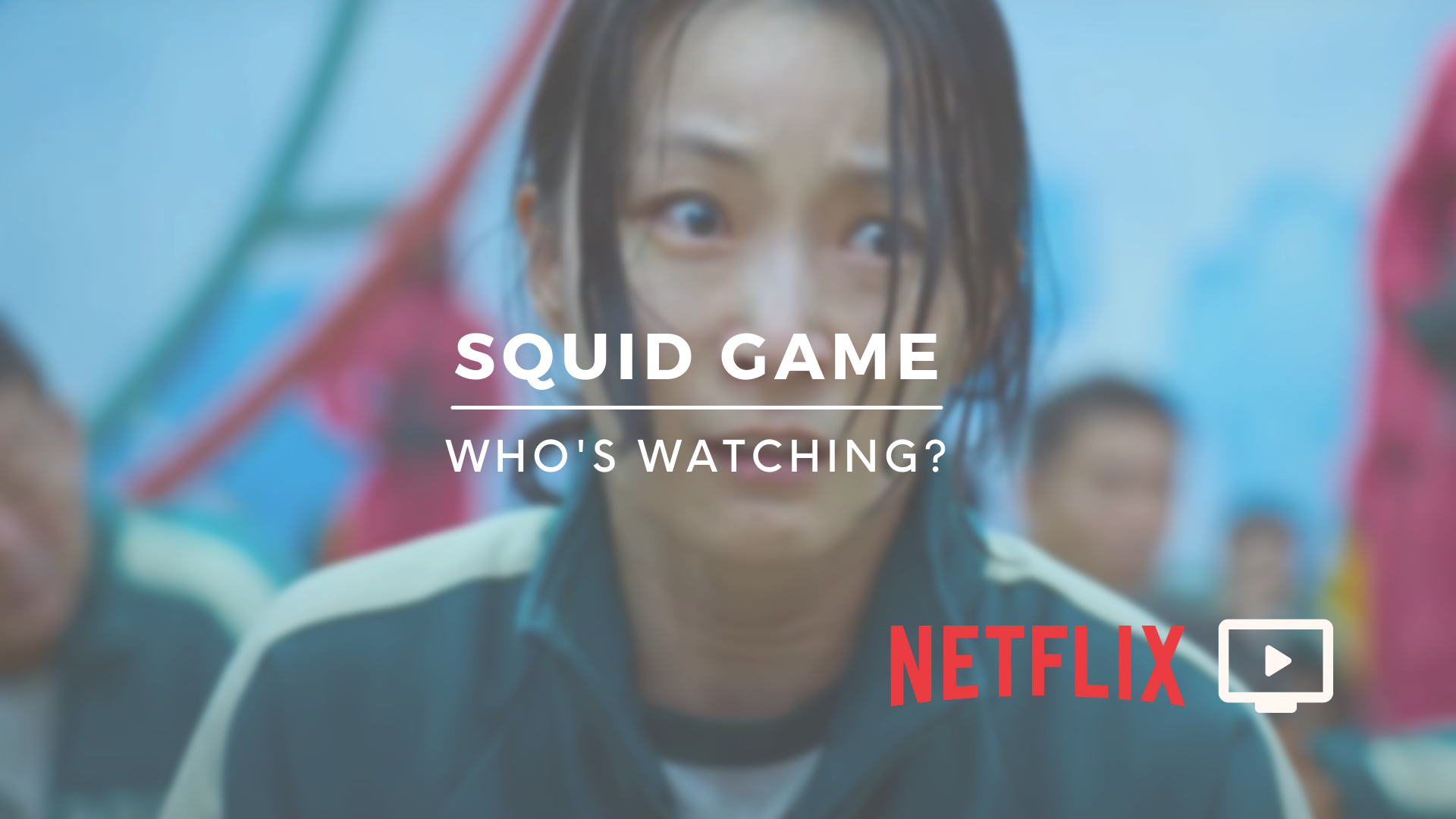Published by: Digital Schools
Squid Game – Who’s Watching?
“Truly traumatising and very violent”, says British reporter Phillip Schofield in an online review of the new television series, Squid Game.
→Psychologist Urges Parents To Stop Their Children From Watching Netflix’s Squid Game | This Morning

Introduction.
A new television series, like non-other, has dominated the screens of Netflix subscribers worldwide.
The most-watched Tv series in history with 142 million households tuning in during the first four weeks on air, Squid Game is dubbed one of the most “violent dramas” ever to air.
Warnings to parents of the psychological trauma this program is likely to have on young minds are coming in thick and fast.
Psychologists believe the graphic nature of the content, which includes – as one report says, “unsettling levels of violence”, can have detrimental effects on the psyche and wellbeing of developing minds.
Parents are warned to pay close attention to the content their kids consume as intensely violent media is becoming popularised by youth. – By Emily Rack

Let’s talk Squid Game and Children’s Exposure.
Claire Orange is a Therapist and Co-founder of DiGii Social – She shares her professional insights in her article below. Claire is a cyber safety expert.
https://digiisocial.com

Squid Game – it’s everywhere! My older teens and young adults have watched and loved it, enjoying the game play aspects of their childhood now made adult with a life-death twist.
They actively defended the content until we talked about how they would feel if their younger cousins were to watch it. ‘Why would anyone let a child watch that?’ they wondered of Squid Game content, showing adults involved in children’s games but with a whole bunch of stabbing, shooting and killing to win the game and win the money. My boys’ response reminded me of just how quickly childhood has changed – from theirs growing up in the early 2000’s to now – not that many years later.
Of course, now, accessibility of content through socials and apps means that even if a child is not looking for it, it is likely to end up somewhere in their viewable content – through shares of friends, tagging or simply seeing it on TikTok or YouTube.
How do we protect our children?
It’s complex! Even if your child is not allowed access to this content, it doesn’t mean that it won’t end up in the playground as some sort of well narrated game, lead by a child who is able to access that content.
And, of course, it also leans into that thrill of being a ‘big kid’ and doing things that are a bit edgy, a bit naughty and a bit ‘grown up’. Well, until it all goes wrong that is. How many times do we say, as parents, it’s all fun and games until someone goes too far and it ends up in tears? If I had a dollar for every time I said that I would be a very, very wealthy mumma!
So, protection – how do we then achieve it if it feels like holding age-inappropriate content back from our young ones is like holding off a tsunami with half a dozen sandbags?
Education. That’s the answer. In so many ways in childhood we protect our children from harm by educating them, telling them about the risk, giving examples and then teaching them what to do. Here are some examples.
- We teach our children to be safe on the road by talking about the dangers, showing our children the ways to be safe, and pointing out high risk situations as teachable moments.
- We teach our children how to be safe in a crowd – how to stay close, how to stay still if they get lost, and to find and adult to help them.
- We teach our children about their body safety and autonomy by talking about private and public parts and we help our children to understand what’s safe and not safe behaviour by others.
In each of those examples we teach our children through explaining what might happen and by teaching them a skill to help them if it does. Access to online content for us and our young ones is like breathing – it’s just part of what we do. Too often we forget that this is a very adult environment now populated by children, with these children needing a highly polished skillset to not only survive but to thrive in this space.

How to talk to children about Squid Games – and other similar content
If we take the same approach as we do in most aspects of parenting, we would then talk about Squid Game not specifically by naming that content, but by talking about seeing content that’s not meant for young eyes. Naming the content – like trying to describe specifically the sort of stranger that might signal danger – isn’t helpful.
Instead, we need to reflect on what it is we’re most worried about with that content (highly sexualised or graphically violent content), communicate that, and also have some helpful suggestions and boundaries to put in place. This is the skeleton of how I’d approach this conversation about Squid Game with curiosity, the willingness to listen and to co-create a solution:
- Do all your friends have the same restrictions on what they see online?
- What do you think about age restrictions – are they good or bad?
- What happens when someone sees stuff that you’re not allowed to?
- Can that turn into games that you play at school?
- Give me some examples. Is there something being played at the moment that you think might not be something that I’d let you watch?
- How would you know if it wasn’t appropriate – something that would make me feel upset for you to be playing?
- What could you do about it?
- What might go wrong if you decide not to play or ask to play the game in a way that’s right for your age? Does that make you feel worried?
- How can I help if you see something you think you shouldn’t, or if someone tells you about it? What would be useful for me to do? What would put you off telling me?
Each one of those questions will yield some interesting conversations. Make sure you’ve sent your face the memo about being open to listening so that no over-horrified or disgusted looks pop up.
For most tweens and early-stage teens, feeling like they’re being asked and not told is important. Usually being told to do something – or not to do something – means that the exact opposite will happen. It’s also useful to talk about a similar experience that you might have had when you were young, how it made you feel, and what you did about it. I remember watching ‘Nightmare on Elm Street’ as a teenager at a sleepover and thinking that I’d never ever sleep again. Being able to tell a parent, knowing they wouldn’t be happy about it, but counting on them not to blow a fuse was my greatest comfort as time did its thing and erased the ghastly gaping emotional torment of what I saw every time I closed my eyes.
It’s going to be OK
It’s hard not to feel anxious when there’s lots of information around on the horrors of this, and the damage waiting to be done of that. Our young ones are growing up in a digital world with a very high risk of exposure t content that will crash into their psyche at some point – and for a while.
The greatest protective factor is a grown up who listens before lecturing, who connects before they correct, and who shows up equally emotionally steady in the best of times and worst of times.
So, check your parent controls and check in with your child often. Talk to them about what they’re watching, if it’s the same or different to their friends, and how they’re feeling about it. Remember – send the memo to your face before you begin. Squid Game is just another – in a long line of what have been, and will be – threat to the sacredness of our children’s childhood innocence. Protect with love and controls, talk early and often, and always, always teach the skills needed to cope and seek help.
*If you are concerned about content that your child has been exposed to and it’s impact on their emotional state and behaviour, please be brave enough to seek help. Start with your family GP. Some children are more influenced by what they see online – usually inadvertently – and early help seeking saves lots of family and parental stress.

Guest Contributor: Claire Orange
Business Name: DiGii Social
Publisher: Digital Schools
Claire Orange is a Therapist and the Director/Co- founder of DiGii Social. She is an expert in cyber safety and educates kids and pre-teens, teenagers and families on how to protect their wellbeing online.
We’re empowering children in their formative pre-teen years how to look after themselves and others online. It’s a big mission – but one so vital that lives are depending on it.
——-
PUBLISHER’S DISCLAIMER: The publisher of this blog post (Digital Schools PTY LTD) works in partnership with the school as a 3rd party provider to help build and maintain the school website. Digital Schools sources a range of experts who provide products and/or services to educational institutions and we work with them to produce and publish topical information in the form of blog posts that we think may be relevant, interesting or topical to families within the community. The views, opinions and content listed in this blog post are that of the guest contributor and/or publisher (Digital Schools). It should be noted that whilst the publisher and guest contributors are acting with the best intentions and in the best interests of the school and their community to provide helpful or interesting information, sometimes the content may not necessarily reflect the views of the school.
The information in this blog post is not meant to be used, nor should it be used, to diagnose or treat any medical condition. For diagnosis or treatment of any medical problem, consult your own physician. The school and the publisher of this blog post are not responsible for any person reading or following the information in this article who may experience adverse effects.
Any references to external websites or sources are provided for informational purposes only and do not constitute an endorsement by the school or publisher in any way and the publisher and/or school cannot guarantee the accuracy of the information listed.
If you have feedback on any content on this platform, you can submit it to the publisher using the feedback link provided at the bottom of this page.


